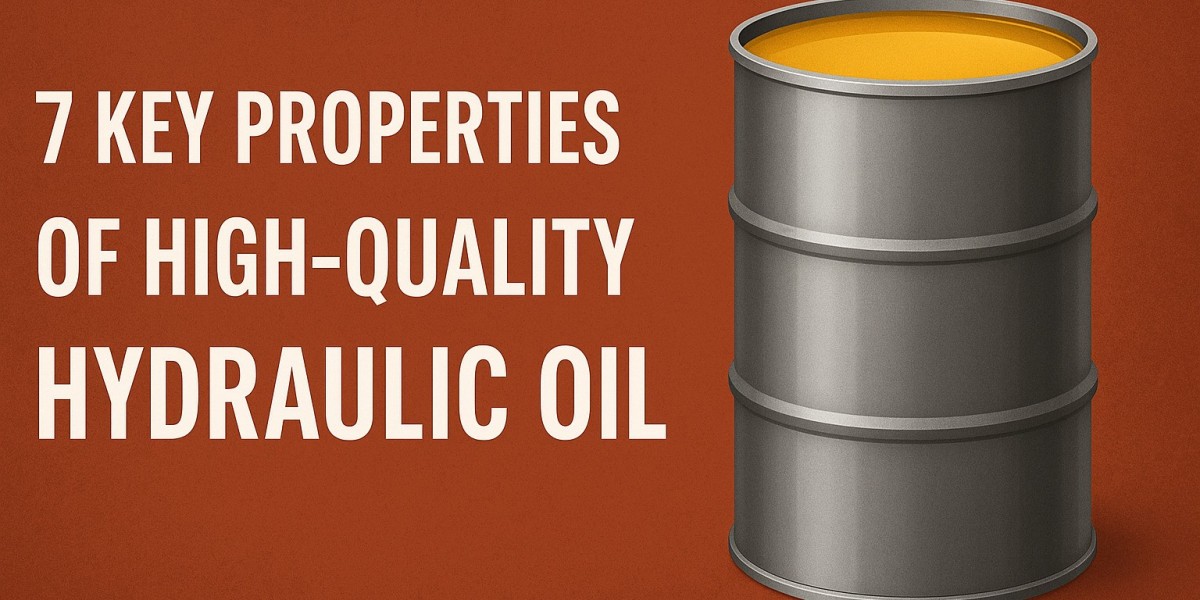Hydraulic oil plays a vital role in the smooth functioning of machinery across construction, manufacturing, automotive, and agricultural industries. Selecting the right hydraulic oil isn’t just about brand or price—it’s about understanding the essential properties that define high-quality performance. Whether you’re a machine operator, maintenance manager, or procurement professional, knowing what to look for can prevent costly breakdowns and extend equipment life.
Here are the 7 key properties of high-quality hydraulic oil every buyer should know, as recommended by trusted hydraulic oil suppliers:
1. Thermal Stability
High-quality hydraulic oil maintains its performance at elevated temperatures. It resists thermal breakdown, which helps keep internal system parts clean and reduces the risk of deposits or varnish that can hinder machinery performance.
2. Oxidation Resistance
Oil oxidation leads to sludge and acid formation, which can damage seals and components. Premium oils from reputable hydraulic oil suppliers offer strong oxidation resistance, ensuring longer oil life and reducing maintenance frequency.
3. Excellent Lubricity
A vital function of hydraulic oil is to reduce friction and wear between moving parts. Superior lubricity prevents premature wear, enhances efficiency, and lowers operating costs over time.
4. Demulsibility (Water Separation)
Water contamination can be a major issue in hydraulic systems. A high-quality oil has strong demulsibility, allowing it to quickly separate from water. This protects the system from rust, corrosion, and poor performance.
5. Anti-Wear Protection
The right hydraulic oil includes additives that form a protective film over metal surfaces. Look for oils with proven anti-wear properties (like those rated with the zinc-based ZDDP additive), especially for high-pressure systems.
6. Filterability
Good hydraulic oil should pass easily through filters without clogging. Clean filtration ensures contaminants don’t reach sensitive system components, which is crucial for equipment used in dusty or harsh environments.
7. Viscosity Stability
Viscosity must remain stable across a wide range of temperatures. Oil that becomes too thick or too thin can damage system components. Reliable hydraulic oil suppliers offer multi-grade oils that maintain ideal viscosity in both hot and cold conditions.
Choosing the Right Hydraulic Oil Supplier Matters
Not all oils are created equal—and neither are all suppliers. Partnering with an experienced and certified hydraulic oil supplier ensures you receive products that meet industry standards, backed by technical support and expert recommendations. Whether you’re operating heavy-duty construction equipment or industrial manufacturing machinery, always source your oil from a supplier who values quality, consistency, and performance.
Final Thoughts
Selecting the right hydraulic oil is more than just a purchase decision—it’s a commitment to equipment health and operational efficiency. By understanding these seven key properties and working with a knowledgeable hydraulic oil supplier, you can ensure your systems run smoother, longer, and more reliably.






